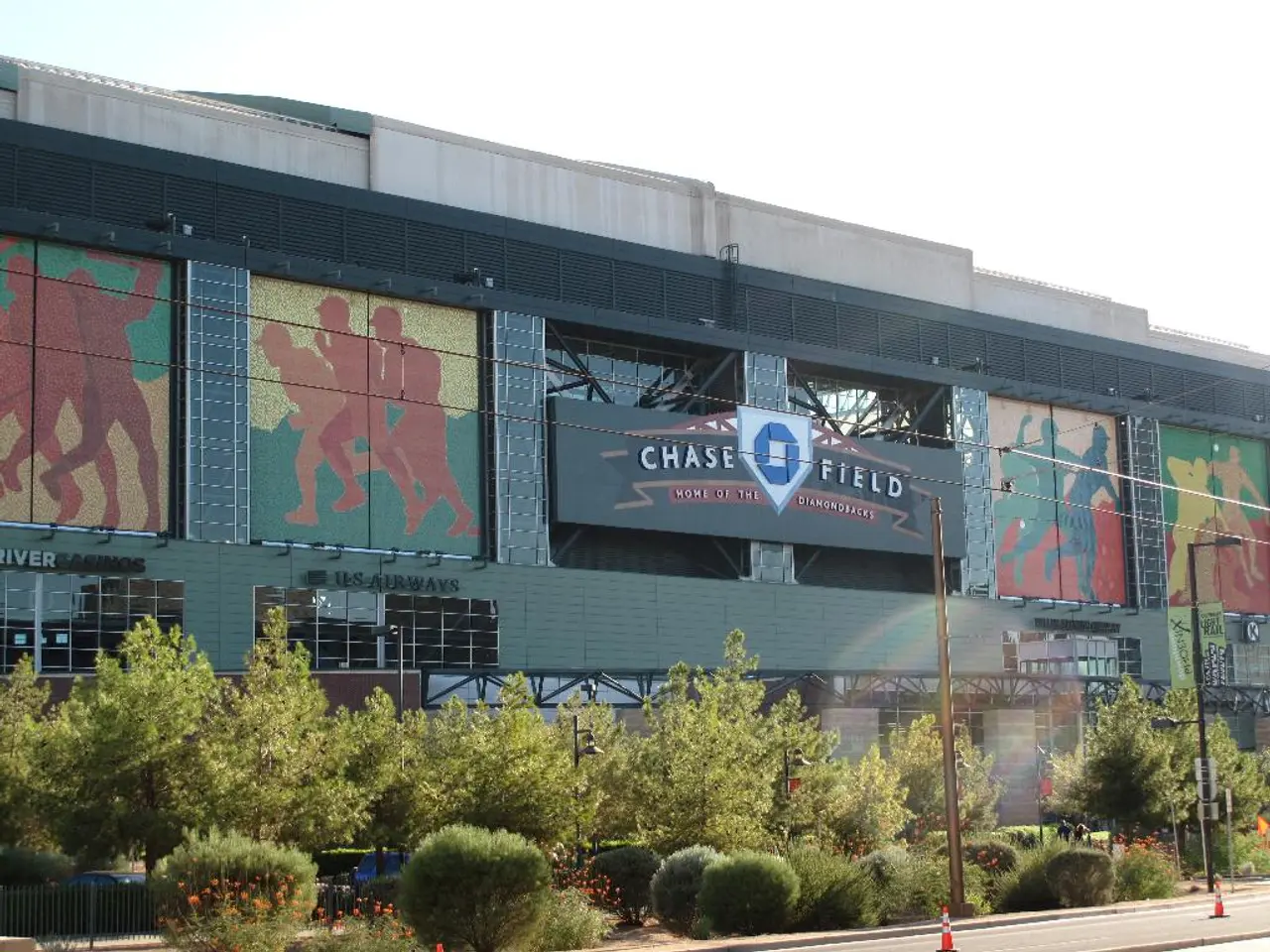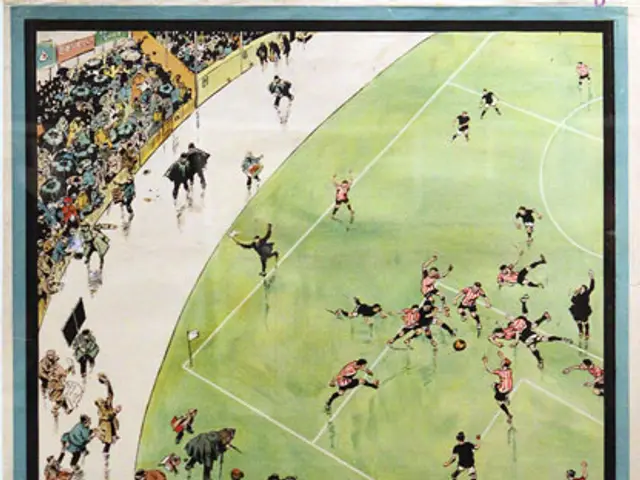MLB Reorganization Proposal by Snyder: Potential Advantages for Baseball League... Under One Specific Stipulation
MLB Commissioner Proposes Dramatic Realignment and Expansion
Rob Manfred, the Commissioner of Major League Baseball (MLB), has sparked a wave of discussion among fans and experts with his recent comments about potential expansion and realignment. During the Little League Classic, Manfred hinted at a major shift in the league's structure, suggesting that the traditional American League (AL) and National League (NL) divisions could be replaced by geographically-based Eastern and Western divisions or conferences, similar to the NBA model [1][2].
The proposed realignment aims to minimize travel fatigue for players, create more regionally focused competition, and enhance postseason formats and broadcasting appeal. For instance, West Coast teams like the Dodgers, Angels, Padres, Giants, Athletics, and Mariners could form a Pacific Division, regardless of their original league affiliation [1][2].
Manfred has expressed his desire to add two new teams before his expected retirement around 2029. Cities such as Portland, Salt Lake City, Orlando, Nashville, and Charlotte have been mentioned as potential locations for these new teams [1][3]. The addition of these teams would bring the total number of MLB franchises to 32, providing more opportunities for talented baseball players.
The potential implications of this realignment are significant. It could mean the elimination or significant alteration of the traditional AL and NL structure, moving towards a model focused more on geography than historical league affiliations [1][2][3].
The Braves, Mets, and Phillies' biggest rivals are not the same as they were in the '70s and '80s. For instance, the Yankees and Mets are suggested to be in the same division in the Eastern Conference, while the Angels and Dodgers could find themselves in the same division in the Western Conference [1][2]. This realignment could bring on fresh rivalries, as evidenced by the Brewers' shift in focus from AL East opponents to the Cubs and Cardinals [1][2].
However, not all teams can be forced to switch leagues. The Yankees, Red Sox, Tigers, Guardians, and White Sox cannot be moved, while the Orioles, who were once the St. Louis Browns, are not considered a non-starter for a league switch [1][2]. On the NL side, the Cubs, Cardinals, Giants, Dodgers, Pirates, Phillies, Braves, and Reds cannot leave the NL [1][2].
The reaction to Manfred's comments has been intense, with some fans expressing concern that the Commissioner is ruining baseball, despite still being die-hard fans. However, others are excited about the prospect of new teams and fresh rivalries [1][2].
In conclusion, the proposed MLB expansion and realignment could mark a major shift in the league's competitive and organizational format, moving towards a model focused more on geography than historical league affiliations [1][2][3]. This change could provide exciting new opportunities for teams and fans alike, although it may take some time for everyone to adjust to the new landscape.
[1] https://www.espn.com/mlb/story/_/id/34198843/mlb-commissioner-rob-manfred-says-expansion-realignment-closely-connected [2] https://www.sportingnews.com/us/mlb/news/mlb-expansion-realignment-rob-manfred-commissioner-interview/1g583qv8y9dcc1g3d9kxg7kl68v2gx7v [3] https://www.si.com/mlb/2021/09/13/mlb-expansion-robert-manfred-interview-2022-2029-timeline-cities-teams-leagues
Read also:
- Weekly happenings in the German Federal Parliament (Bundestag)
- Southwest region's most popular posts, accompanied by an inquiry:
- Discussion between Putin and Trump in Alaska could potentially overshadow Ukraine's concerns
- Massive 8.8 earthquake hits off the coast of Russia's Kamchatka Peninsula, prompting Japan to issue a tsunami alert.







